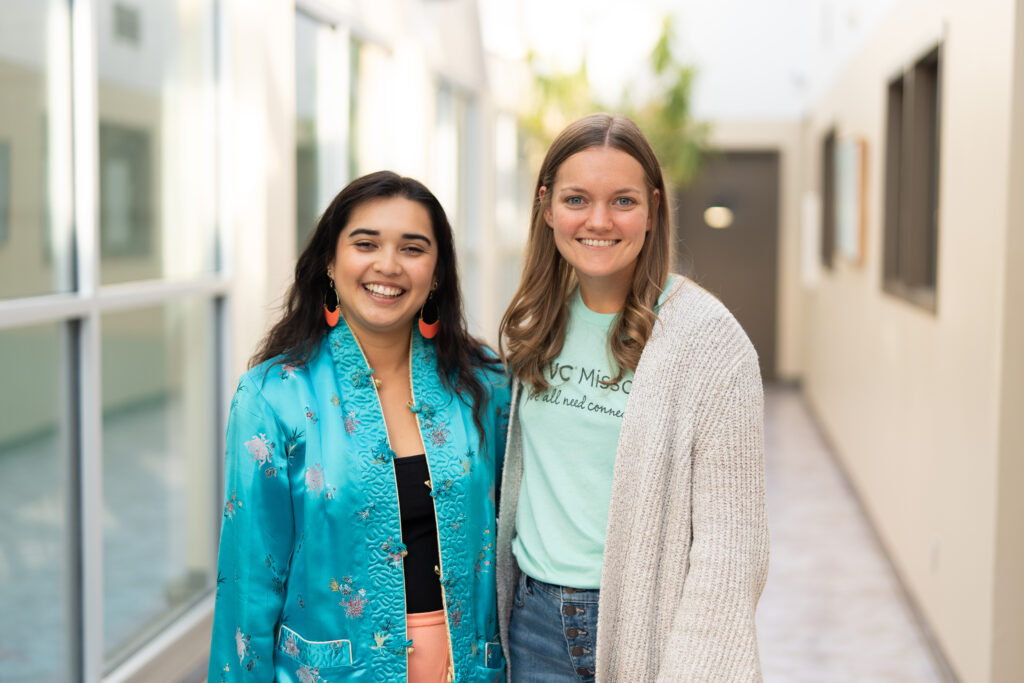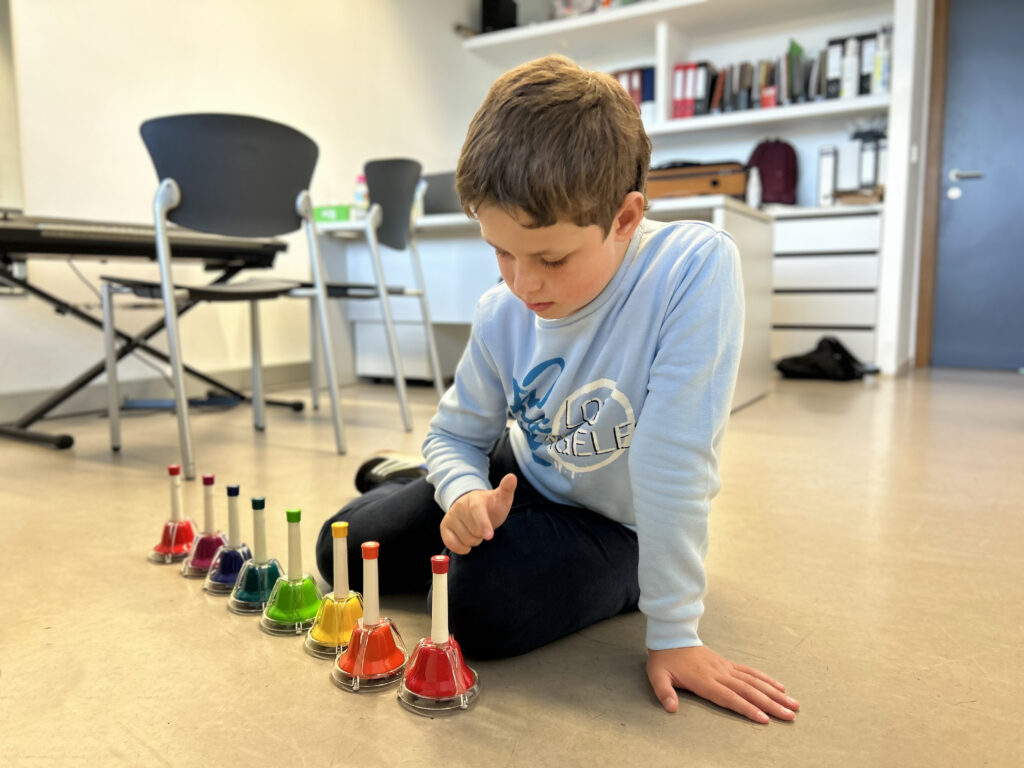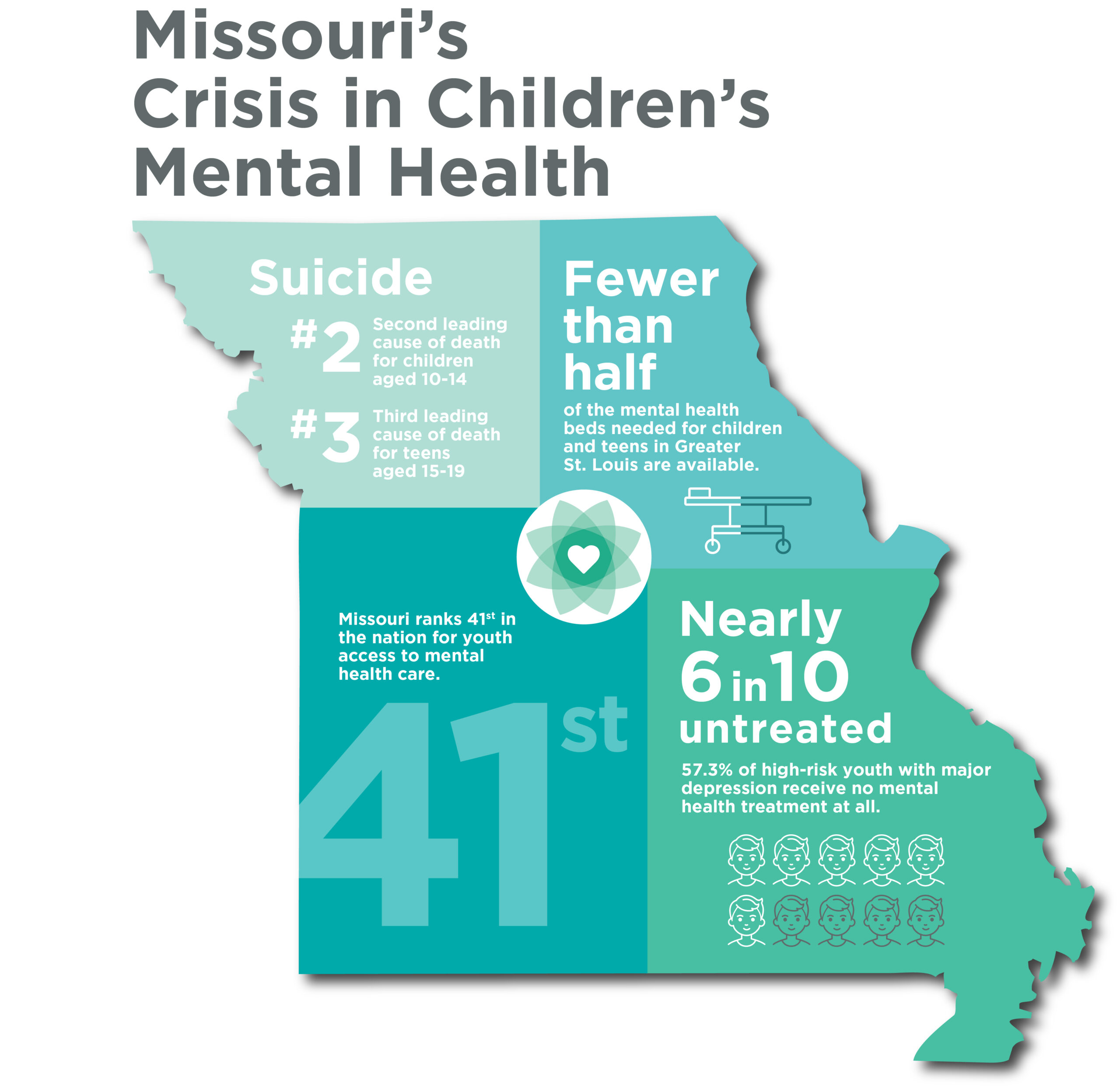How KVC Helped Teen Get a Second Chance at Life: Music Therapy for Children’s Mental Health

KVC Missouri provides residential treatment for youth who are struggling with their mental health and need intensive and compassionate care in a therapeutic setting with 24/7 supervision. Our approach to residential treatment is trauma-informed and emphasizes the importance of building healthy attachments and relationships. We create customized treatment plans for each child which use a range of therapeutic approaches. We focus on meeting children where they are and giving them a voice in how they engage in treatment.
KVC also provides expressive therapy to KVC Academy students. Through our KVC Academies, we foster learning, growth and healing in a therapeutic school setting. This form of therapy allows students to engage in creative and expressive activities, fostering emotional well-being and personal growth. Whether in residential treatment or participating in expressive therapy in our education program, our overarching goal remains the same – to empower youth in their mental health journey.
Often, treatment plans include one or more expressive therapies. In these sessions, our professional team guides clients to learn about themselves and identify emotional triggers. This helps clients gain tools to help regulate their emotions.
Music therapy is a popular expressive therapy that helps youth clients connect with their feelings. It provides them with a safe space for emotional release and healing. Expressive therapies provide an alternative outlet for youth who have a hard time connecting through traditional talk therapy. Read on to learn more about music therapy and for an inspiring story of how music therapy made a positive difference in the life of a teen served at KVC Niles, our residential treatment center in Kansas City.

Music Therapy at KVC
Music therapy is an evidence-based therapeutic approach that focuses on naturally lifting moods and improving overall wellbeing through music. Engaging in music therapy can involve making or listening to music, writing songs, singing, or discussing different sounds and lyrics. This form of expressive therapy is making waves in the psychology field due to its success in treating a wide range of physical and mental health conditions.
At KVC, music therapy can include a variety of therapeutic approaches. Depending on an initial evaluation and a youth’s interests, a therapist will work with a client to determine which approaches will best serve them. The many benefits of music therapy can include:
- Improved perception of feelings
- Increased ability to self-soothe
- Decreased feelings of anxiety
- Better recognition of triggers
- Development of new coping strategies
- Increased ability to verbalize feelings

KVC Music Therapist Hope (left) and Expressive Program Manager Ashton (right)
Trauma-Informed Treatment at KVC
Expressive therapies like music are particularly effective when working with youth who have experienced trauma such as abuse, neglect, loss, or unhealthy relationships. KVC provides a safe and supportive environment for children to explore, heal and grow. “A lot of clients seen at KVC have dealt with trauma in their past,” explains Ashton Johns, Expressive Program Manager at KVC Niles. “KVC is a trauma-informed provider, meaning that all therapies offered, all staff and each interaction is treated with trauma-informed care.”
Trauma-informed care works to create an optimal environment for a client’s wellbeing. Blending trauma-informed principles with expressive therapies helps to build a strong and healthy foundation. These tools are useful for clients to use long after they are discharged from one of KVC’s treatment centers. When it comes to trauma-informed care, research shows that music therapy:
- Works as a nonverbal alternative for those who have difficulty expressing trauma-related emotions
- Allows clients to be actively involved in their own treatment
- Fosters emotional intimacy with family members and peers
- Improves physical wellbeing by lowering blood pressure, reducing heart rate and relaxing muscle tension
The structure and stability of music therapy combined with freedom of expression cultivates a safe environment for children to process and discuss their experiences.

An Inspirational Music Therapy Success Story at KVC Niles
Recent graduate Michael (name changed for confidentiality) found music therapy intriguing from the moment he learned about it. Hope Romero, Music Therapist at KVC Niles, remembers how Michael first engaged with music therapy. “He came by the room and said, ‘I heard you can record songs, and this is something I’m interested in because I’ve been doing it for a long time,’” Romero recalls. She worked with Michael through his therapy sessions and empowered him to expand upon his creative talents.
“Michael dealt with trauma before arriving at Niles,” Johns shares, “but I also felt like he had a lack of identity. And he was trying to find his identity in other places and with other people that led him into some situations that weren’t good.” While at KVC, Michael began to find his identity through creating music.
Watch this video on Michael’s story:
What started as an interest turned into a healing practice. Also, songwriting enabled him to describe the hope and personal transformation he was experiencing from KVC’s caring environment and from participating in individual and group therapy. Romero says, “Within our sessions, it began as a space for [Michael] to express himself, basically meeting him where he was at.” Since music was an emotional outlet for Michael before he arrived at Niles, it became a familiar and safe therapy method. Because music therapy spoke to Michael so deeply, he looked forward to his weekly sessions with excitement and anticipation.
During his stay at Niles, Michael worked with Romero on writing songs and developing music to process his experiences and fuel his healing. Right before his high school graduation, Michael wrote a song called “Second Chance at Life.” He premiered it at his graduation party, and he shared it with us! You can listen to it here.
Beyond Music Therapy
Michael used music therapy to process emotions and create something positive. While others can have a similar experience with any type of expressive therapy. Not only do expressive therapies help children and adolescents work through emotions and traumatic experiences, but they also provide a healthy outlet for processing future experiences. The Expressive Therapy Program at Niles and other KVC locations incorporates music therapy, art therapy, recreational therapy, horticulture therapy, equestrian therapy and more to interact with clients and engage them in therapy in different ways.
KVC is dedicated to the health and wellbeing of its clients. “Something I respect most about KVC is the desire to be client-centered,” Johns reflects. “This is one reason why expressive therapy has grown at KVC. They are willing to do whatever needs to be done to better the services and create greater connection.”
Here at KVC, we know we all need connection. Expressive therapies are just some of the many ways we build healing connections with children and families and help youth connect more deeply with themselves.
If you are concerned about a child or teen in your care and their mental health, we’re here for you. To get your child connected to trauma-informed care and expressive therapies, call KVC Missouri at (844) 424-3577. In addition to residential treatment, we provide a range of outpatient mental health services, therapeutic education services and more.





